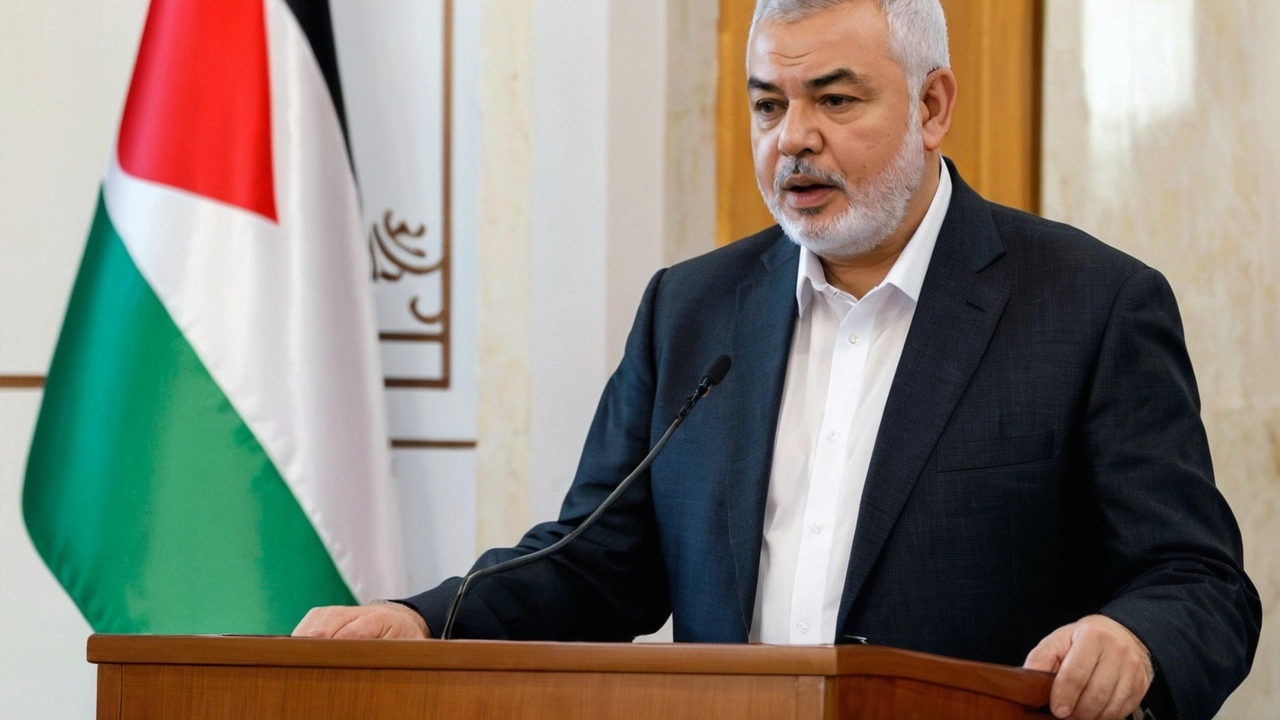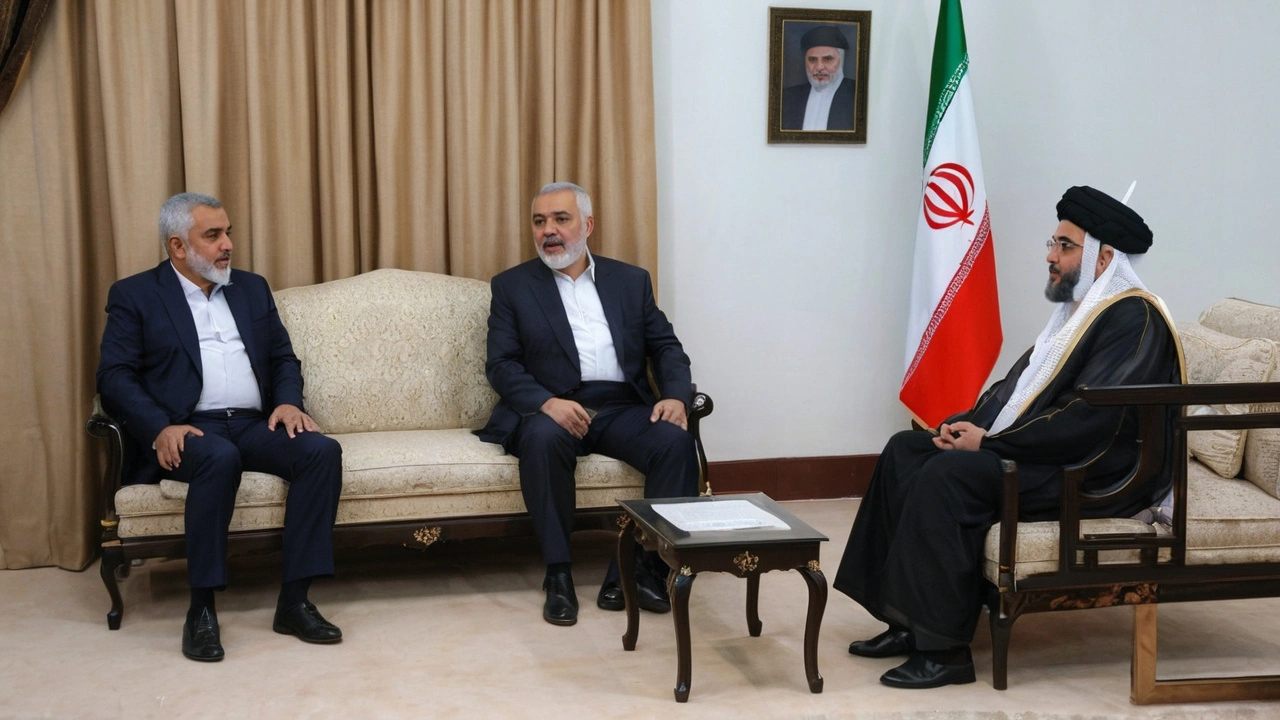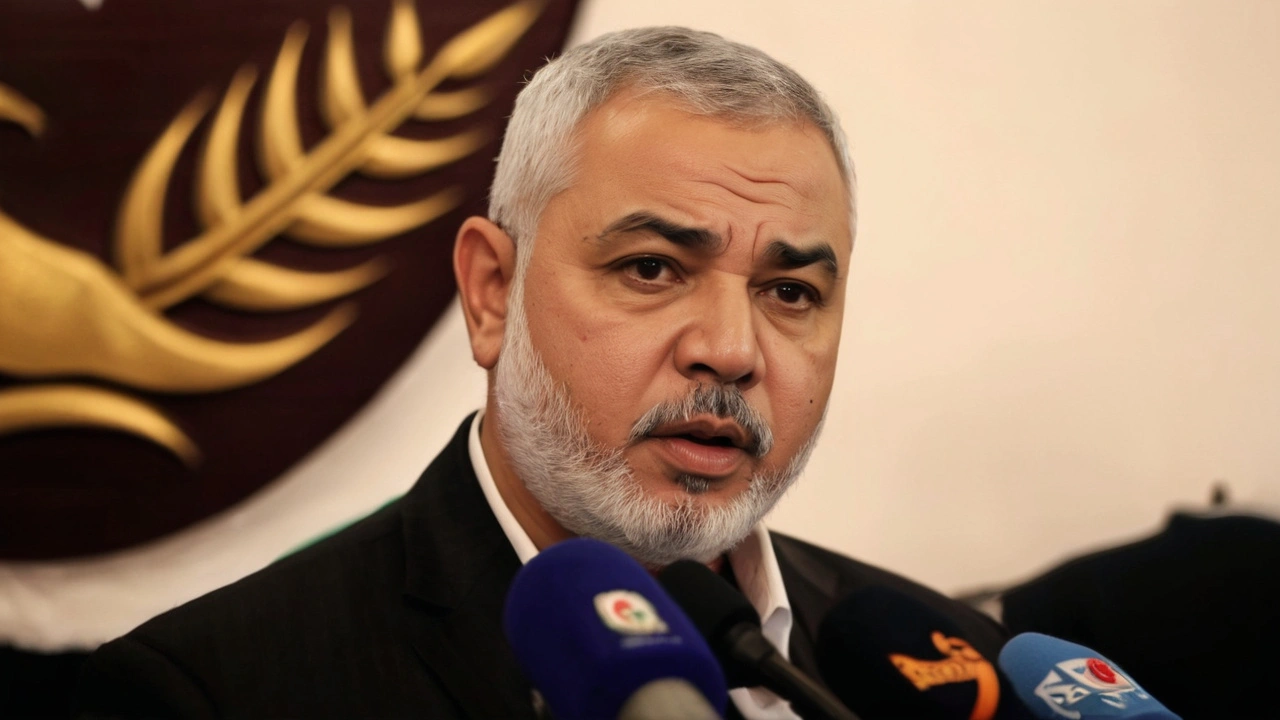Middle East Conflict Escalates with Assassination of Hamas Leader Ismail Haniyeh

In World News
Ismail Haniyeh Assassination Deepens Middle East Tensions
The assassination of Ismail Haniyeh, a key Hamas political leader, in Tehran, Iran, has sent shockwaves through the Middle East, marking a grim escalation in the longstanding conflict between Israel and Hamas. The incident took place shortly after Haniyeh attended Iran's presidential inauguration, an event that drew prominent political figures from various allied nations.
Details Surrounding The Incident
According to sources within Hamas, Haniyeh was in the Iranian capital specifically to attend the inauguration proceedings. However, just hours after the event, reports emerged that he had been assassinated. Iranian officials, laying the blame squarely on Israel, have vowed a 'harsh and painful response' to the assassination. The circumstances surrounding Haniyeh's death have not been fully detailed, but the implications are clear: this act is seen as a deliberate provocation in the already volatile region.
Hamas and Israel's Fraught History
Haniyeh had been a pivotal figure in Hamas for nearly two decades. Known for his leadership skills and strategic mind, he spent many years in Doha, Qatar, where he was based before traveling to Iran. His untimely death comes amid a backdrop of heightened tensions, particularly following a severe escalation that began on October 7. On this day, a deadly attack by Hamas on Israel resulted in the tragic loss of over 1,200 Israeli lives and the capture of approximately 250 hostages. This event triggered a series of retaliatory actions from Israel, including airstrikes and ground operations aimed at Hamas strongholds in Gaza, leading to the deaths of nearly 40,000 Palestinians.
Reactions and Repercussions
The assassination of Haniyeh has been met with an array of international reactions. Iranian leaders have condemned the act, with threats of severe retribution adding a new layer of complexity to the regional dynamics. The international community, while often divided on Middle Eastern affairs, has expressed concern over the potential for further violence. Interestingly, the timing of the assassination - immediately following a significant political event in Iran - underscores the geopolitical intricacies at play.

Israel's Targeted Strategy
Israel's leaders have made no secret of their intent to pursue and neutralize high-ranking Hamas officials in response to the October 7 attacks. This assassination appears to be a manifestation of that strategy. Within Israel, there is a palpable sentiment of justice being served following the recent hostilities. However, this action might be a double-edged sword, amplifying the cycle of violence and retribution that has plagued the region for decades.
Broader Implications for the Region
Haniyeh's death is expected to have profound implications for Hamas's operational capabilities and strategic direction. As a senior figure within the organization, his leadership and experience were invaluable. The vacuum left by his assassination may result in internal power struggles within Hamas, potentially leading to shifts in their approach and tactics. Furthermore, this incident can strain Hamas's alliances and support networks within the region, prompting a re-evaluation of strategies among allied groups and nations.
Potential Responses and Global Reactions
The international community will be closely monitoring the developments arising from this incident. Countries with vested interests in Middle Eastern stability may call for restraint and dialogue even as the rhetoric of retribution intensifies. Global powers such as the United States, Russia, and China will likely issue statements urging de-escalation to prevent a broader regional conflict. At the same time, humanitarian organizations are preparing for the potential fallout, anticipating a surge in violence and the subsequent need for aid and intervention.
Future Prospects
As the region grapples with the immediate aftermath of Haniyeh's assassination, the long-term prospects for peace and stability remain uncertain. The ongoing cycle of violence underscores the need for renewed diplomatic efforts and a comprehensive resolution to the underlying issues fueling the conflict. The path forward will require significant concessions and a commitment to dialogue from all parties involved.

Conclusion
The assassination of Ismail Haniyeh represents a critical juncture in the Israel-Hamas conflict. As both sides brace for the consequences, the broader Middle East watches with bated breath, aware that the ramifications of this act could reverberate far beyond the immediate geographic confines. The coming days will be crucial in determining whether the region descends further into chaos or steps back from the precipice to seek a more sustainable resolution.
Write a comment